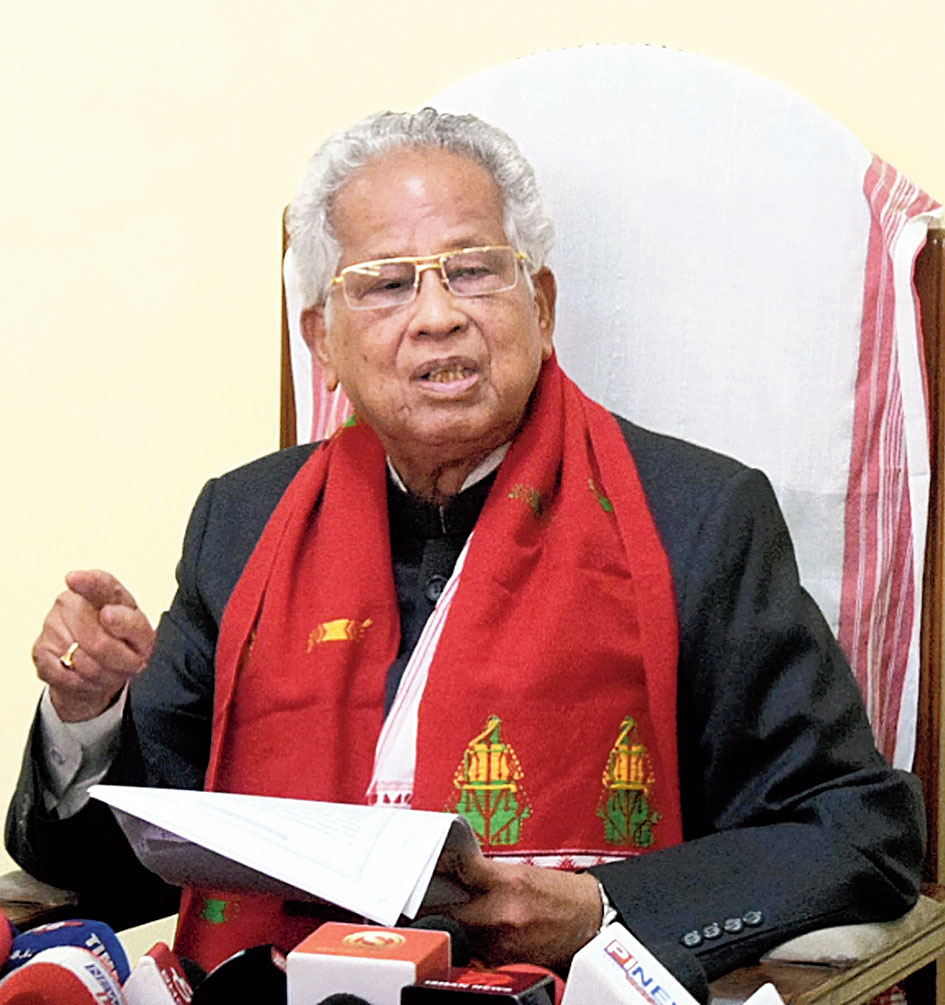Former Assam chief minister Tarun Gogoi on Wednesday claimed the Bodo Accord could “backfire” on the government because non-Bodos residing in the BTAD (Bodoland Territorial Area Districts) were “not” consulted before the pact was signed in Delhi on Monday.
The state and central governments have been asserting that it was a win-win deal for all stakeholders as it had tried to address the concerns of all and not only a deal for the Bodos, particularly highlighting that territorial integrity of the state had been kept intact. A key demand of the Bodo groups was a separate Bodoland state.
“What was the hurry to sign the pact? Why didn’t the government discuss and take the opinions of the other indigenous communities living in the BTAD? It’s due to the shortsightedness of the ruling party this accord may give birth to new problems. I suspect it is a new jumla of the ruling BJP,” Gogoi told reporters here.
He also criticised the idea of appointing deputy commissioners and superintendents of police in consultation with the Bodoland Territorial Council (BTC) chief executive member. “This has indirectly allotted the home department to the BTC from the state government. It may adversely affect Assam’s law and order in the future,” Gogoi said.
Adip Kumar Phukan, working president of Asom Songrami Mancha, a new political party, said the pact was “not” democratic as it had allegedly ignored the sentiments and concern of the 67 per cent non-tribals living in the BTAD. “The BJP-led NDA government has buried the basic objective of its sabka saath, sabka vikas slogan by signing the Bodo Accord with only 33 per cent Bodo population residing in the Bodoland Territorial Region. Moreover, it has partially fulfilled the aspirations of the Bodo communities. The Centre has to allay the fears of the non-Bodos,” he said.
Prabajan Virodhi Mancha convener Upamanyu Hazarika also highlighted the exclusion of non-Bodos from the consultation process. “Once again chief minister Sarbananda Sonowal and his government have participated in widening the rift between indigenous communities and further worsening the status of non-Bodo indigenous communities in the BTAD, who had earlier become second-class citizens under the 2003 Accord,” Hazarika said, adding that the “unilateral” accord with one while excluding others will create new tensions.
However, assuring equal opportunity for all, irrespective of caste, communities and religion, BTC spokesperson Tridip Daimary said, “The fresh accord will ensure inclusive development and will create a new landscape of economic prosperity for all in the BTR. The pact is not meant for a particular community. There is no discrimination in the name of caste and communities. The fresh accord will simply expedite development.”










